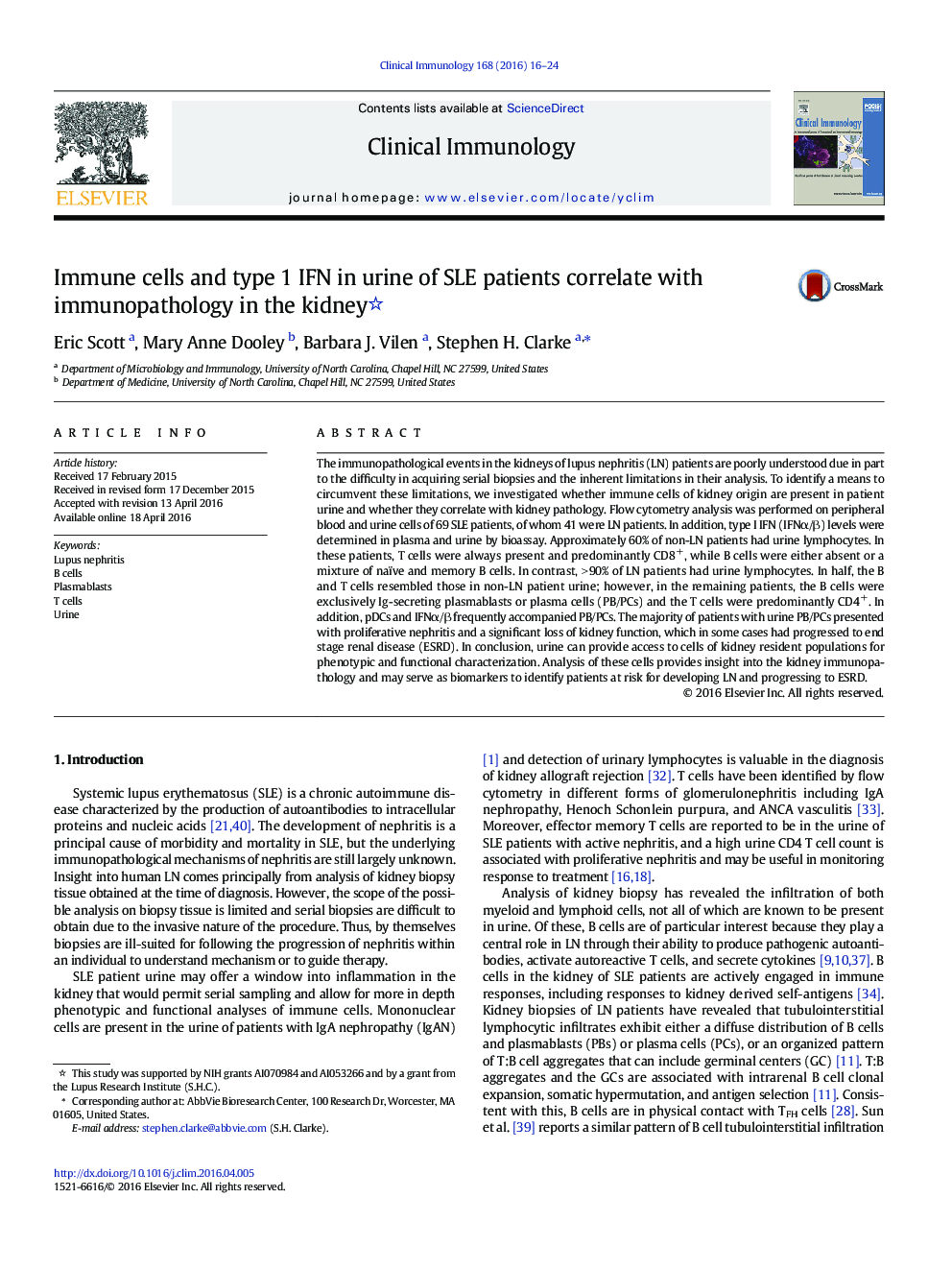| کد مقاله | کد نشریه | سال انتشار | مقاله انگلیسی | نسخه تمام متن |
|---|---|---|---|---|
| 6087024 | 1589422 | 2016 | 9 صفحه PDF | دانلود رایگان |

- B cells, T cells, and pDCs are present in urine of SLE patients and likely represent kidney-resident populations.
- B cells were either naïve/memory B cells or plasmablast/plasma cells (PB/PCs).
- Urine PB/PCs correlated with more severe kidney disease and proliferative nephritis.
- A high urine CD4:CD8 T cell ratio and a high frequency of DN T cells correlated more severe nephritis.
- Urine immune cells may serve as biomarkers to identify patients at risk for developing LN and progressing to ESRD.
The immunopathological events in the kidneys of lupus nephritis (LN) patients are poorly understood due in part to the difficulty in acquiring serial biopsies and the inherent limitations in their analysis. To identify a means to circumvent these limitations, we investigated whether immune cells of kidney origin are present in patient urine and whether they correlate with kidney pathology. Flow cytometry analysis was performed on peripheral blood and urine cells of 69 SLE patients, of whom 41 were LN patients. In addition, type I IFN (IFNα/β) levels were determined in plasma and urine by bioassay. Approximately 60% of non-LN patients had urine lymphocytes. In these patients, T cells were always present and predominantly CD8+, while B cells were either absent or a mixture of naïve and memory B cells. In contrast, > 90% of LN patients had urine lymphocytes. In half, the B and T cells resembled those in non-LN patient urine; however, in the remaining patients, the B cells were exclusively Ig-secreting plasmablasts or plasma cells (PB/PCs) and the T cells were predominantly CD4+. In addition, pDCs and IFNα/β frequently accompanied PB/PCs. The majority of patients with urine PB/PCs presented with proliferative nephritis and a significant loss of kidney function, which in some cases had progressed to end stage renal disease (ESRD). In conclusion, urine can provide access to cells of kidney resident populations for phenotypic and functional characterization. Analysis of these cells provides insight into the kidney immunopathology and may serve as biomarkers to identify patients at risk for developing LN and progressing to ESRD.
Journal: Clinical Immunology - Volume 168, July 2016, Pages 16-24